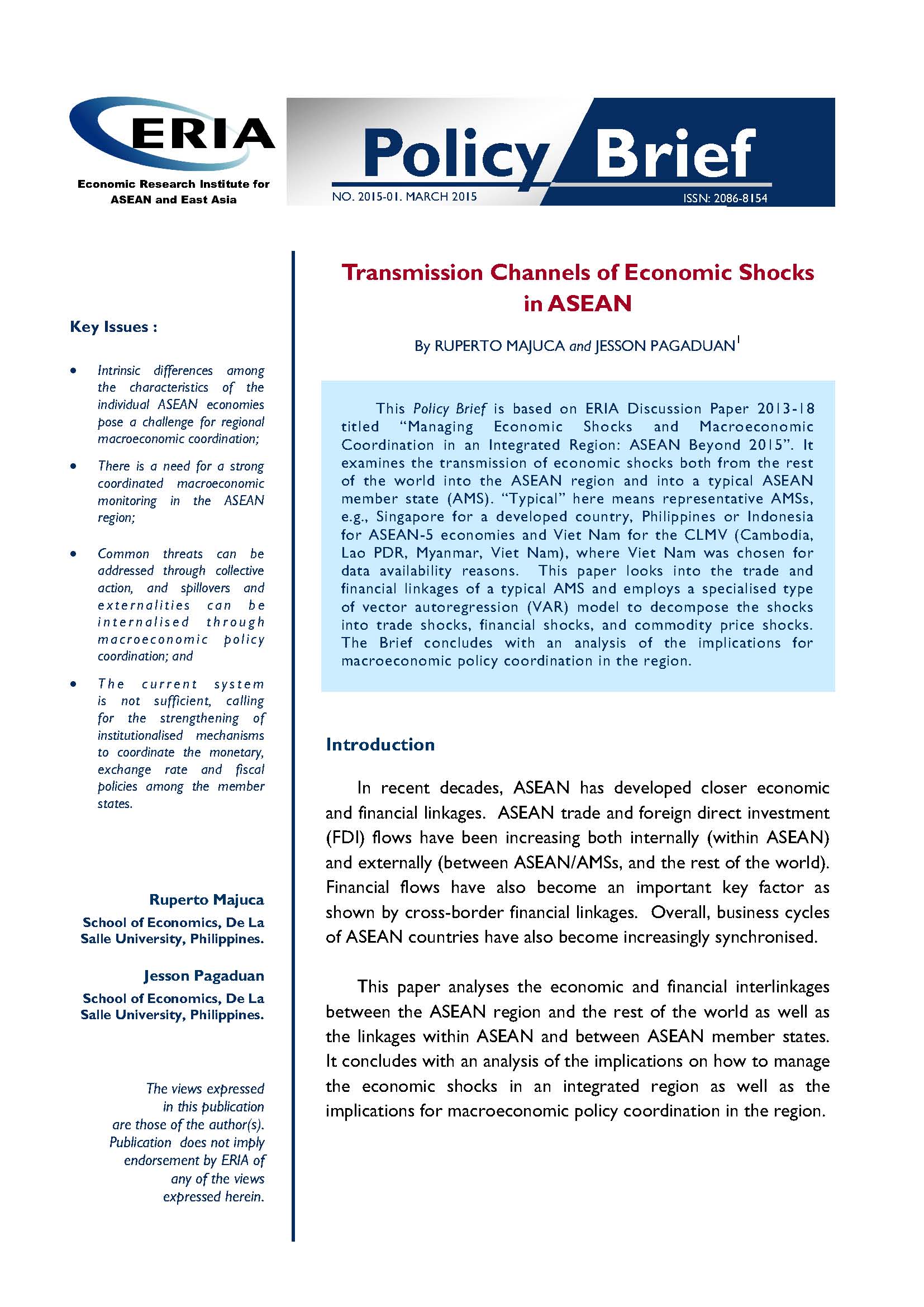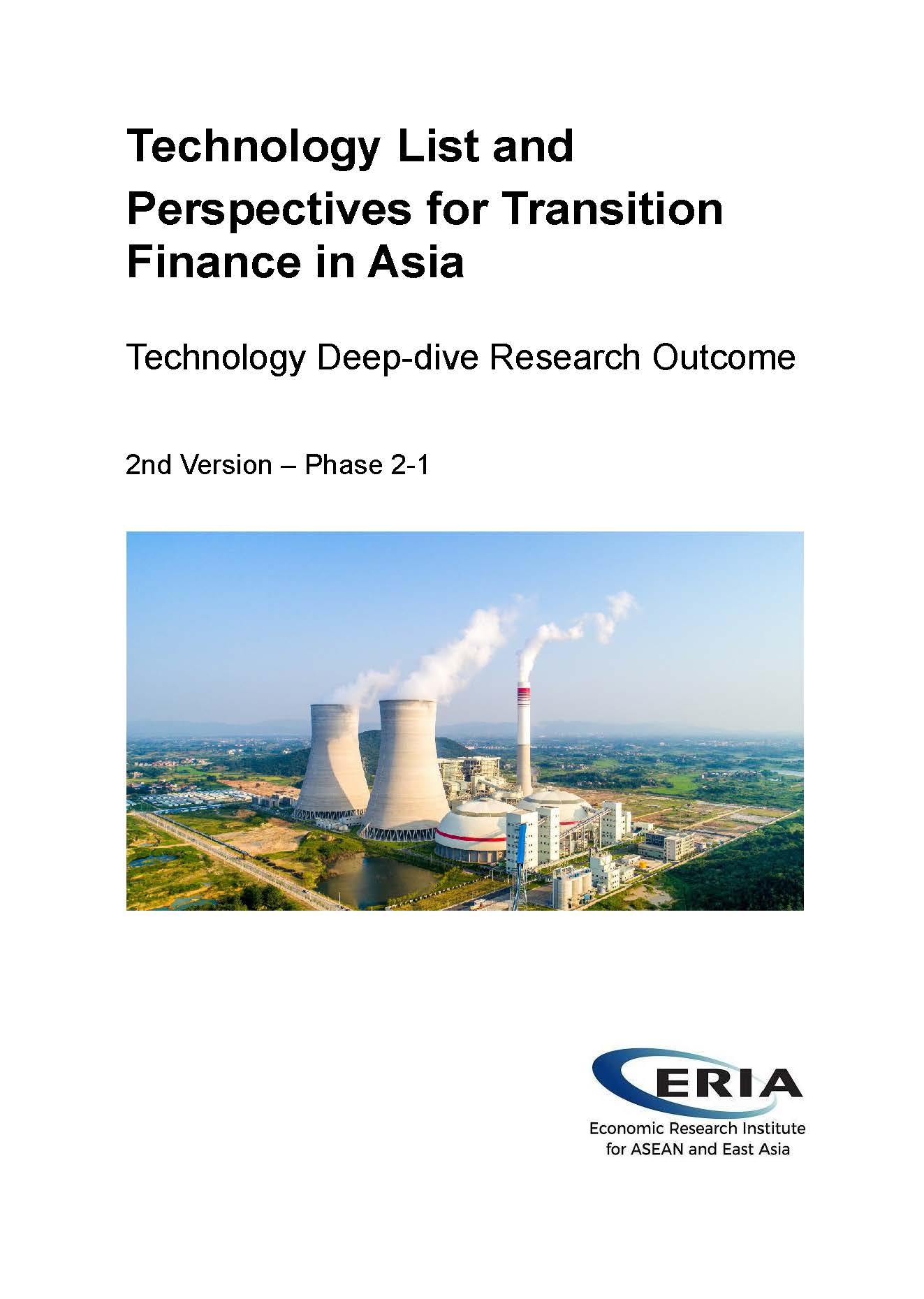Transmission Channels of Economic Shocks in ASEAN

Date:
17 March 2015Category:
ASEAN, Competitiveness, Finance and Macroeconomy, Urban DevelopmentType:
Policy BriefsTags:
Urban Development, MacroeconomyPrint Article:
This Policy Brief is based on ERIA Discussion Paper 2013-18 titled "Managing Economic Shocks and Macroeconomic Coordination in an Integrated Region: ASEAN Beyond 2015". It examines the transmission of economic shocks both from the rest of the world into the ASEAN region and into a typical ASEAN member state (AMS). "Typical" here means representative AMSs, e.g., Singapore for a developed country, Philippines or Indonesia for ASEAN-5 economies and Viet Nam for the CLMV (Cambodia, Lao PDR, Myanmar, Viet Nam), where Viet Nam was chosen for data availability reasons. This paper looks into the trade and financial linkages of a typical AMS and employs a specialised type of vector autoregression (VAR) model to decompose the shocks into trade shocks, financial shocks, and commodity price shocks. The Brief concludes with an analysis of the implications for macroeconomic policy coordination in the region.




